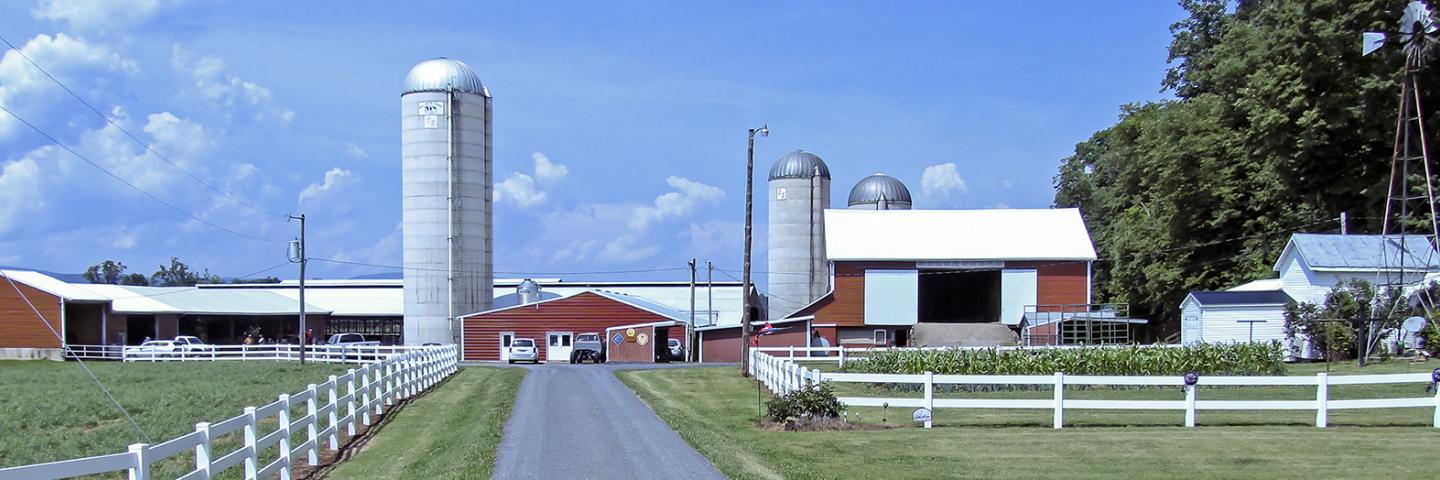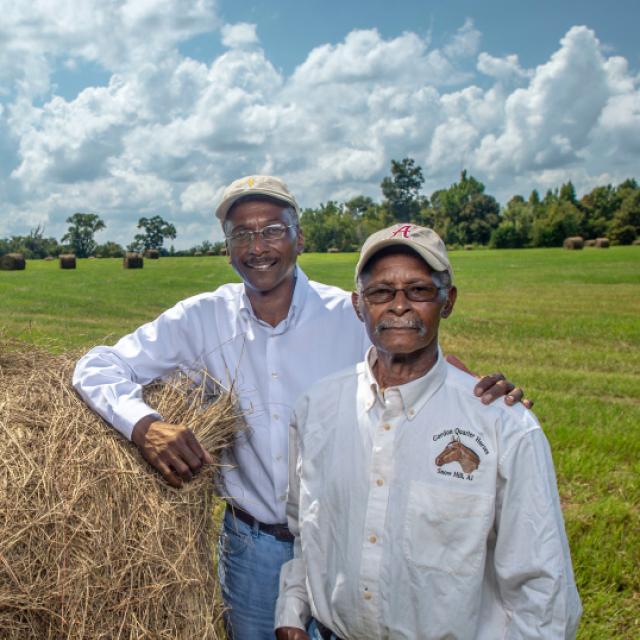
The Conservation Stewardship Program (CSP) helps you build on your existing conservation efforts while strengthening your operation.
State Program Overview
CSP provides two types of payments through five-year contracts:
- Annual payments for installing new conservation activities and maintaining existing practices
- Supplemental payments for adopting a resource-conserving crop rotation
- FY2022 Screening and Ranking Criteria (link to uploaded pdf).
Payments are made soon as practical after Oct. 1 of each fiscal year for contract activities installed and maintained in the previous year. Producers may be able to renew a contract if they have successfully fulfilled the initial contract and agree to achieve additional conservation objectives.
Virginia FY2023 CSP Classic applications must be received by Nov. 4, 2022, to be considered for this funding period.
Eligibility
Eligible lands include private and tribal agricultural lands, cropland, grassland, pastureland, rangeland and nonindustrial private forest land. CSP is available to all producers, regardless of operation size or type of crops produced, in all 50 states, the District of Columbia and the Caribbean and Pacific Island areas.
Applicants may include individuals, legal entities, joint operations, or Indian tribes that meet the stewardship threshold for at least two priority resource concerns when they apply.
Applications competing in the Classic signup must also meet Stewardship Threshold Eligibility:
Stewardship Threshold Eligibility
- Does the applicant meet at least two Resource Concern Categories (RCCs) at the time of application on all land uses and all land use groups?
- Does the applicant meet at least three RCCs at the time of application on at least one land use or meet the original criteria and a third RCC by the end of the contract on at least one land use?
- Applicant meets the stewardship threshold eligibility if the answer is “Yes” to Q1 and Q2.
Applications competing in the Renewal signup must also meet Stewardship Threshold Eligibility:
Stewardship Threshold Eligibility
- Does the applicant meet at least two RCCs at the time of application on all land uses and all land use groups?
- Does the applicant meet at least two new State Priority RCCs not met at time of application by the end of the contract on the operation?
- Does the applicant exceed at least two State Priority RCCs met at time of application by end of the contract on the operation?
- Applicant meets the stewardship threshold eligibility if the answer is “Yes” to Q1 and either Q2a or Q3.
Virginia Priority RCCs for FY2022 Classic and FY2023 Renewal
Agricultural Land
Crop
- Concentrated erosion
- Degraded plant condition
- Field sediment, nutrient and pathogen loss
- Soil quality limitations
- Terrestrial habitat
- Wind and water erosion
Pasture
- Concentrated erosion
- Degraded plant condition
- Field sediment, nutrient and pathogen loss
- Livestock production limitation
- Soil quality limitations
- Terrestrial habitat
- Wind and water erosion
Farmstead
- Concentrated erosion
- Storage and handling of pollutants
- Terrestrial habitat
Associated Ag Land
- Concentrated erosion
- Terrestrial habitat
- Wind and water erosion
Forestry Land
Forest
- Aquatic habitat
- Concentrated erosion
- Degraded plant condition
- Fire management
- Pest pressure
- Soil quality limitations
- Terrestrial habitat
- Wind and water erosion
Farmstead
- Aquatic habitat
- Concentrated erosion
- Terrestrial habitat
Associated Ag Land
- Aquatic habitat
- Concentrated erosion
- Pest pressure
- Terrestrial habitat
- Wind and water erosion
CSP Enhancements
Enhancements are management activities that go above and beyond the minimum conservation practice standard requirements helping the producer achieve a higher level of conservation.
Note: Some enhancements have Virginia supplements. Please contact your local USDA Service Center for details.
- View enhancements and bundles offered in Virginia (Note: FY23 Renewals use the FY22 Payment Schedule.)
- View specific job sheets for offered Virginia enhancements
Virginia CSP Champions - Playlist
State Contact:
Dana R. Bayless, Conservation Stewardship Program Manager
Phone: 804-287-1653 | Email: dana.bayless@usda.gov
Ready to get started?
Contact your local service center to start your application.
How to Get Assistance
Do you farm or ranch and want to make improvements to the land that you own or lease?
Natural Resources Conservation Service offers technical and financial assistance to help farmers, ranchers and forest landowners.

To get started with NRCS, we recommend you stop by your local NRCS field office. We’ll discuss your vision for your land.
NRCS provides landowners with free technical assistance, or advice, for their land. Common technical assistance includes: resource assessment, practice design and resource monitoring. Your conservation planner will help you determine if financial assistance is right for you.
We’ll walk you through the application process. To get started on applying for financial assistance, we’ll work with you:
- To fill out an AD 1026, which ensures a conservation plan is in place before lands with highly erodible soils are farmed. It also ensures that identified wetland areas are protected.
- To meet other eligibility certifications.
Once complete, we’ll work with you on the application, or CPA 1200.
Applications for most programs are accepted on a continuous basis, but they’re considered for funding in different ranking periods. Be sure to ask your local NRCS district conservationist about the deadline for the ranking period to ensure you turn in your application in time.
As part of the application process, we’ll check to see if you are eligible. To do this, you’ll need to bring:
- An official tax ID (Social Security number or an employer ID)
- A property deed or lease agreement to show you have control of the property; and
- A farm number.
If you don’t have a farm number, you can get one from USDA’s Farm Service Agency. Typically, the local FSA office is located in the same building as the local NRCS office. You only need a farm number if you’re interested in financial assistance.
NRCS will take a look at the applications and rank them according to local resource concerns, the amount of conservation benefits the work will provide and the needs of applicants. View Application Ranking Dates by State.
If you’re selected, you can choose whether to sign the contract for the work to be done.
Once you sign the contract, you’ll be provided standards and specifications for completing the practice or practices, and then you will have a specified amount of time to implement. Once the work is implemented and inspected, you’ll be paid the rate of compensation for the work if it meets NRCS standards and specifications.

